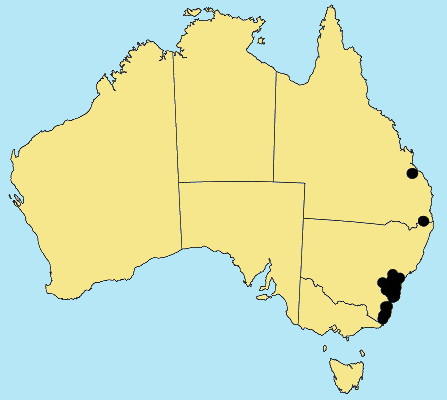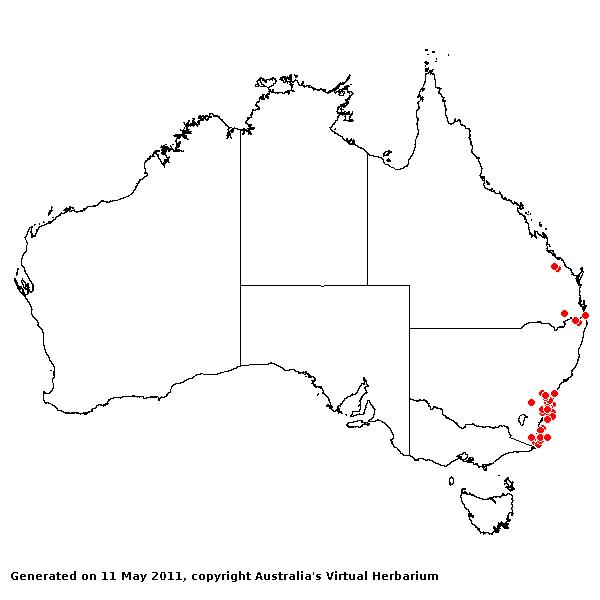Poa cheelii Vickery. Contr.
New South Wales Natl. Herb. 4: 195 (1970).
Classification.
(GPWG 2001) : Subfamily Pooideae. Tribe Poeae.
Type of Basionym or
Protologue Information: Australia: New South Wales: Blue Mts.: Between Mt.
Victoria and Blackheath: 1 Jan 1958, J. Vickery s.n. (HT: NSW 43187).
Key references
(books and floras): [2002] D.Sharp & B.K.Simon, AusGrass, Grasses of
Australia, [2008] S.W.L.Jacobs, R.D.B.Walley & D.J.B.Wheeler, Grasses
of New South Wales (348), [2009] A.Wilson (ed.). Flora of Australia,
Vol 44A. Poaceae 2 (329).
Illustrations:
[2008] S.W.L.Jacobs, R.D.B.Whalley & D.J.B.Wheeler, Grasses of New South
Wales, 4th edn (348).
Habit.
Perennial. Rhizomes present, short. Culms 25–100 cm tall, 3 -noded. Mid-culm
internodes glabrous. Mid-culm nodes glabrous. Lateral branches simple or
branched. Leaves mostly basal. Leaf-sheaths scaberulous, glabrous on surface.
Ligule an eciliate membrane or a fringed membrane, a ciliolate membrane, 0.9–1
mm long, abaxially hairy, truncate. Leaf-blades erect, straight or flexuous,
flat or conduplicate or involute, 6–25 cm long, 0.6–4 mm wide. Leaf-blade
surface glabrous.
Inflorescence.
Inflorescence compound, a panicle. Panicle elliptic, 8–25 cm long, with
spikelets clustered towards branch tips.
Spikelets.
Spikelets pedicelled. Fertile spikelets many flowered, with at least 2 fertile
florets ((2-)5–7), comprising (2–)5–7 fertile floret(s), with diminished
florets at the apex, oblong, laterally compressed, (3.5–)5.5–9.4 mm long.
Glumes. Glumes
similar. Lower glume oblong, membranous, keeled, 1-keeled, 3 -nerved. Upper
glume oblong, 2–4.3 mm long, membranous, keeled, 1-keeled, 3 -nerved. Upper
glume surface asperulous.
Florets.
Fertile lemma 3–4.5 mm long, keeled, 5 -nerved. Lodicules present. Anthers 3.
Grain 2 mm long.
Continental
Distribution: Australasia.
Australian
Distribution: Queensland, New South Wales.
Queensland:
Port Curtis, Moreton. New South Wales: Central Coast, South Coast,
Central Tablelands, North-Western Slopes.
Notes.
Readily distinguished by the nature of the rhizome and its enveloping scales.
Endemic.
N from Bega, N.S.W. Often on stony sites or poor soils in woodland. Flowers
Dec.-Jan. Fruits Jan., Apr.



